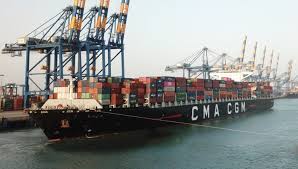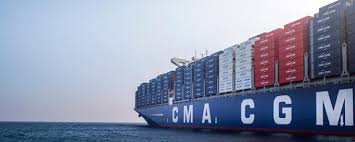New Bill to Strengthen Coastal Trade, Reduce Logistics Costs, and Boost Jobs

In a landmark move, the Lok Sabha has passed the Coastal Shipping Bill, 2024, setting the stage for a dedicated legal framework to unlock the full potential of India’s vast coastline. The bill aims to streamline coastal trade, reduce logistics costs, and promote sustainable transportation while integrating seamlessly with the National Logistics Policy.
Union Minister of Ports, Shipping, and Waterways Shri Sarbananda Sonowal emphasised that the bill aligns with Prime Minister Narendra Modi’s vision for a cost-efficient, alternative logistics network. “Under PM Narendra Modi ji’s visionary leadership, India’s coastal cargo traffic has surged by 119% since 2014, with an ambitious target of 230 million tonnes by 2030,” Sonowal stated.
Key Highlights of the Coastal Shipping Bill, 2024:
- Dedicated Legal Framework: The bill modernises regulations and ensures legal clarity for coastal trade, replacing outdated provisions in the Merchant Shipping Act, 1958.
- Coastal and Inland Shipping Strategic Plan: Mandates the formulation of a long-term plan to promote regional development of riverine and coastal economies.
- Regulation of Foreign Vessels: Introduces licensing provisions for foreign vessels engaging in India’s coastal trade, ensuring fair competition and boosting domestic shipbuilding.
- Ease of Doing Business: Removes the general trading license requirement for Indian ships, reducing compliance burdens.
- National Database for Coastal Shipping: Enhances transparency, coordination, and data-driven decision-making.
- Cooperative Federalism: Ensures active representation for states and union territories in shaping coastal shipping policies.
A Game-Changer for Indian Maritime Trade
Sonowal reiterated that the bill aligns with international best practices while being tailored for India’s unique needs. “This bill will reduce logistics costs, promote green transport, and support the ‘Make in India’ initiative while creating thousands of jobs in shipbuilding, port services, and vessel operations.”
The bill also addresses the strategic integration of coastal and inland waterways, crucial for boosting India’s riverine economies. Sonowal highlighted its significance for states like Odisha, Karnataka, and Goa, ensuring inclusive and participative growth in the maritime sector.
Driving India’s Maritime Future
With India’s coastal cargo traffic already witnessing an exponential rise, the bill lays a strong foundation for the future of coastal trade. By providing regulatory stability and investment-friendly policies, it strengthens India’s maritime security and propels the nation towards its Atmanirbhar Bharat goals.
Opposition concerns over the bill’s inclusivity were addressed, with Sonowal reaffirming the commitment to cooperative federalism. “A dedicated committee comprising representatives from major ports, State Maritime Boards, and industry experts will draft the National Coastal and Inland Shipping Strategic Plan, ensuring that states have a direct role in shaping the industry’s future.”
The Coastal Shipping Bill, 2024, marks a significant step in India’s journey towards a modernised, efficient, and sustainable maritime logistics network, reinforcing the country’s position as a global shipping powerhouse.
Source: PIB










